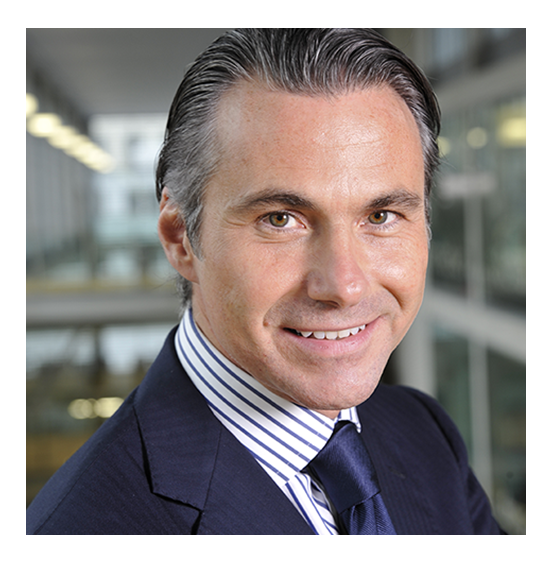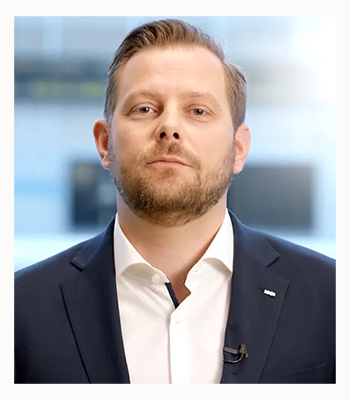The Vienna Stock Exchange (VSE) has decided to discontinue the calculation of the Russian Depositary Index (RDX) and 14 other indices with Russian Depositary underlyings.
The 15 indices suspended since the beginning of March were based on prices determined on the London Stock Exchange (IOB). The decision became effective on 17 May.
Outstanding structured products can be switched to Russian indices with a local price source (Moscow Stock Exchange - Moex). The calculation of all Russian indices with the price source Moscow is paused until further notice. In addition, the composition of local Russian indices will be altered due to the exclusion of Russian companies that are targets of sanctions imposed by the European Union.
Our main aim is to be ready with our indices as soon as trading becomes possible again on Moex - Johannes Klaus, VSE
SRP has learned no issuer has switched their outstanding products to Russian indices calculated in Russia.
“Currently this has not happened,” Johannes Klaus (pictured), senior manager listings & indices, index services at VSE told SRP. “However, we have redesigned our indices in a way that such a move would be possible. At the moment the main problem is that foreign banks do not have access to the official market at Moscow Exchange.”
The Austrian exchange is mulling a separate trading segment for foreigners in the future, but no final decision has been taken yet.
“Our main aim is to be ready with our indices as soon as trading becomes possible again on Moex and then issuers might transfer their open interest to the local market,” said Klaus.
The decision of the exchange is based on previous Russian legislative changes which, among other things, prohibit Russian issuers from trading their shares outside Russia via Depositary Receipts (DRs).
According to SRP data, there are almost 900 live structured products featuring the Russian Depository index (in EUR and USD) worth an estimated US$150m. Most of the products were marketed in Germany and Austria via flow and leverage products, however, the bulk oft he volume comes from products sold in the instituional market (five products/US$126m) and the UK market (four products/US$20.3m).
Swiss bank partners with Vestr to launch digital solution for AMCs
Luzerner Kantonalbank (LUKB) has partnered with AMC specialist fintech Vestr to expand its structured products business with AMCs.
Under the partnership Vestr’s cloud-based platform will enable LUKB to launch and issue AMCs as it seeks to capitalise on the ‘great potential in active management’.
‘The AMC business is a volume business. This means that you need a large number of AMCs to reach your business goals. This is only possible through integrated automation. A software specifically built for AMCs further reduces operational risks,’ said Claudio Topatigh (right), head competence centre structured products at Luzerner Kantonalbank.
LUKB’s B2B clients will have a full overview of their investment portfolios via the platform and will be able to ‘adjust their portfolios in a few clicks, anywhere and anytime’.
Virtu partners with trading platform, market makers in RFQ hub push
The market maker, broker and technology provider has launched a consortium to drive the global expansion of its multi-dealer RFQ platform.
Virtu Financial has launched RFQ-hub Holdings, a consortium to support the growth of its bilateral multi-asset and multi-dealer request for quote platform RFQ-hub.
Alongside Virtu, founding members of the consortium include liquidity providers Citadel Securities, Flow Traders and Jane Street Capital, asset manager BlackRock and electronic trading platform MarketAxess which will also be taking a significant minority stake in the platform.
The goal of the newly formed consortium is to support the next stage of growth for RFQ-hub ‘by fostering the creation of a global institutional platform designed specifically for these instruments’, according to Joseph Molluso, co-president and co-chief operating officer, Virtu Financial .
"The founding members of this consortium represent a diverse array of market participants organising for the common goal of improving access and execution of ETFs and derivatives for institutional investors,’ he said.
RFQ-hub allows asset managers and liquidity providers to ‘electronically deliver aggregated liquidity, streamline workflow and improve pricing’ with a focus on equity and fixed income listed and OTC derivatives, structured products and exchange-traded funds (ETFs).
iMaps expands AMC range with AI trading CfD strategy
Lichtenstein-based structured products issuer iMaps ETI has announced that its iMaps Capital Markets (iMaps) brand has launched the Aiternativ Dynamic ETI (ISIN: DE000A3GW617), a new exchange-traded investment (ETI) product wrapped as an actively managed certificate (AMC) in cooperation with Aiternativ Ltd.
The AMC uses artificial intelligence in the form of a trading algorithm to control the underlying assets to generate reliable returns in the forex markets. The product is available for trading on the Stuttgart Stock Exchange and is approved for public distribution in Germany, Liechtenstein, Luxembourg, Spain, Portugal and Austria.
Investments are made exclusively in contracts for difference (CfDs) on the foreign exchange market (Forex).
‘The strategy is based on an automated trading system that identifies, evaluates and, if necessary, trades in short-term volatility breakouts, said Andreas Woelfl (right), founder and chairman of iMaps ETI.
‘In the underlying asset of the actively managed ETI, currencies and contracts for difference can be used for both appreciation (long positions) and depreciation (short positions) assumptions. As a result, it enables extensive flexibility and a return that is independent of the general stock and bond markets.’
Nasdaq rolls out EQD digital education program
Nasdaq has launched the Nasdaq Derivatives Academy in the Nordics. The set of training modules responds to the growing interest among both investment professionals and retail investors to use equity derivatives and aims to increase knowledge about the opportunities and risks associated with trading these instruments.
‘Equity derivatives bring with them opportunities to manage risks and the possibility to generate returns in all market conditions,’ said Niclas Egmar (right), head of equities trading and derivatives at SEB.
‘We welcome [this] initiative to spread more insights on how to trade these assets in a way that’s customised to both professional and less experienced investors.’
Nasdaq Derivatives Academy has been developed in partnership with educational partners as well as Nordic market participants and offers three separate educational programs aimed at professional and private investors as well as risk, post-trade and compliance professionals. The private investor program is offered free of charge.
The launch of Nasdaq Derivatives Academy is the most recent development in exchange’s roadmap to ‘advance inclusive growth and prosperity by providing resources to underserved communities, making markets more accessible to all’.
In December 2021, Nasdaq announced a partnership with a number of local organizations across its European markets to enhance financial literacy among community groups where knowledge of investments traditionally is low. In 2019, Nasdaq launched OptionsPlay to educate Nordic investors on options trading.


